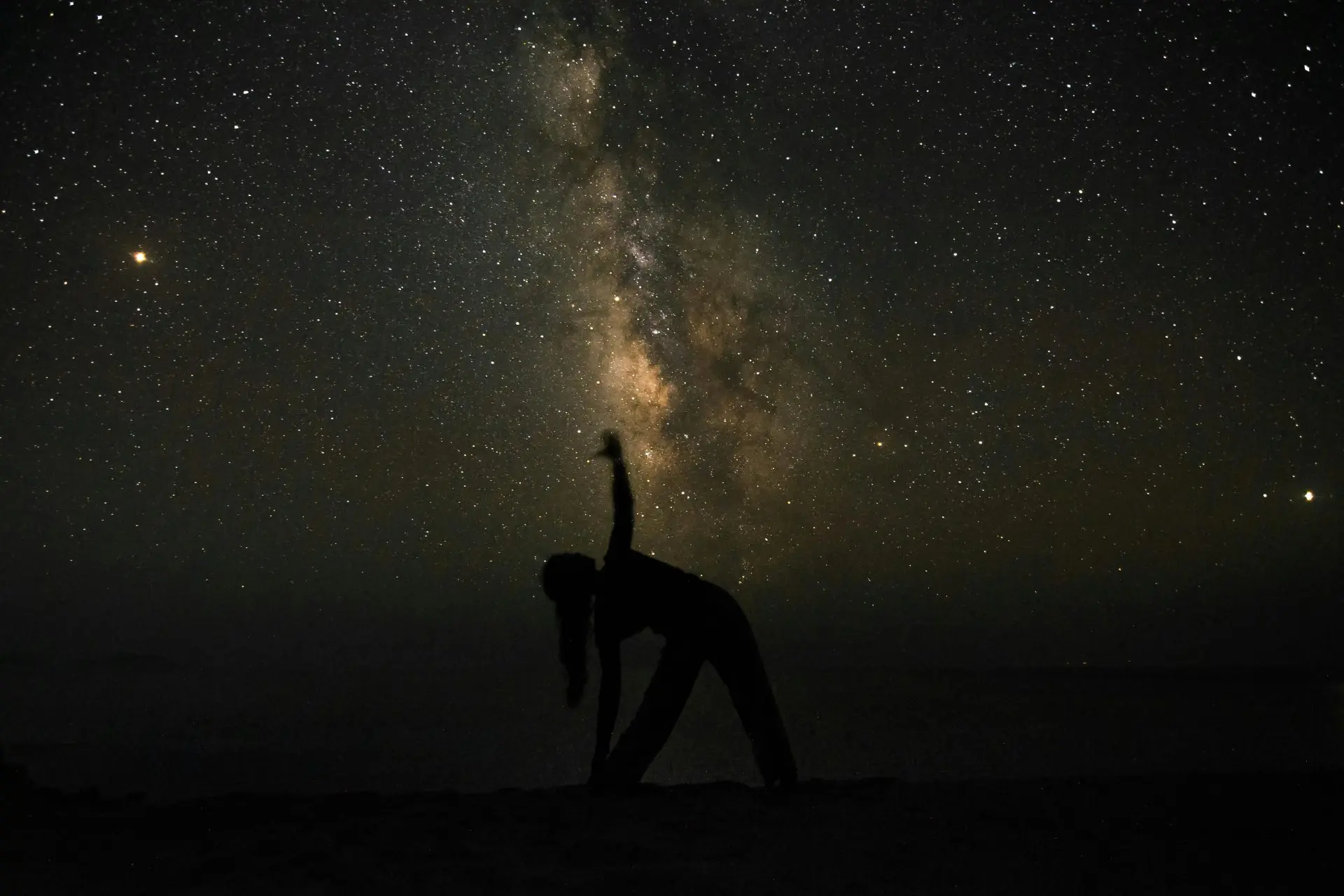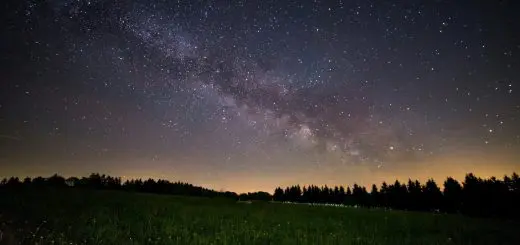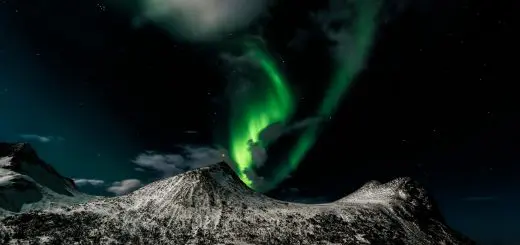The Afterlife: Is There Life After Death?

Looking for more amazing products? Check out our online store and explore our collection here! Happy shopping!
Before diving in, please note: This post is for informational purposes only. If you’d like to know more about how we approach topics, feel free to check out our friendly Disclaimer Page.
Hey there, amazing readers! 
We’re committed to delivering quality posts, and your support (even just sticking around despite the ads) means everything to us. So, bear with us, and thanks for helping us keep the good vibes rolling. Now, on to the fun stuff!
TRANSLATE BUTTON AT THE END OF THE ARTICLE
A Quick Overview
The question of whether there is life after death has puzzled humanity for centuries.
It’s one of those timeless inquiries that transcends cultures, religions, and generations.
Whether you’re a skeptic, a believer, or somewhere in between, contemplating the afterlife can stir a mix of curiosity, hope, and sometimes fear.
In this article, we’ll take a cheerful journey through various perspectives on the afterlife, including ancient beliefs, scientific research, personal experiences, and spiritual insights.
So grab a cup of your favorite beverage and let’s dive in!
Exploring the Big Question: Is There Life After Death?
As we ponder the afterlife, we encounter a myriad of questions.
What happens when we die?
Is there a continuation of consciousness?
Or is it simply lights out?
The mystery of the afterlife can evoke feelings of both dread and wonder.
For some, contemplating the afterlife brings solace.
It serves as a reminder that life is fleeting, encouraging us to embrace each moment.
Others find it a source of anxiety, fearing the unknown.
The diverse opinions on this topic often hinge on personal experiences, cultural backgrounds, and spiritual beliefs.
In pondering the afterlife, it’s valuable to recognize that many people find comfort in their beliefs.
Even if scientific evidence is lacking, the human desire for connection and continuity can drive the belief in an afterlife.
This exploration isn’t just philosophical; it speaks to our inherent need for meaning.
The afterlife can also be seen as a subjective experience.
Some may envision a paradise filled with loved ones, while others may find solace in the idea of reincarnation.
This subjectivity can create a rich tapestry of beliefs.
And while science may not provide definitive answers, it doesn’t discount the personal truths individuals hold.
Ultimately, the question, "Is there life after death?" invites us to explore our values, fears, and what it means to live fully.
Whether we find comfort in religious teachings, scientific inquiry, or personal intuition, it’s a question worth pondering.
Ancient Beliefs: How Various Cultures View Afterlife
Throughout history, different cultures have painted their own pictures of the afterlife.
The ancient Egyptians, for instance, believed in a detailed journey after death.
They thought that one would navigate through the Duat, facing various deities and judgments before reaching the Field of Reeds—a serene paradise resembling life on earth.
In contrast, the Greeks viewed the afterlife as a shadowy realm.
The souls of the deceased were believed to reside in the Underworld, ruled by Hades.
Their fate rested on the choices made in life, leading to different areas within this realm, like Elysium for the virtuous and Tartarus for the wicked.
Meanwhile, many Indigenous cultures have a unique perspective on the afterlife.
They often see death as a transition rather than an end.
The belief in ancestors living among the living is common, fostering a deep connection with those who have passed.
The Hindu perspective introduces the cycle of samsara, where souls are reincarnated in new bodies based on karma.
This belief fosters a sense of responsibility in life, as every action influences one’s next existence.
The understanding of life after death can vary tremendously, but one thing remains clear: cultures around the globe have sought to make sense of death, providing comfort and guidance through their narratives.
The Science of Afterlife: What Does Research Say?
When it comes to the science of the afterlife, things get tricky.
Science operates on empirical evidence, and when it comes to life after death, there’s a notable lack of concrete proof.
However, researchers have delved into related areas, like near-death experiences (NDEs) and consciousness studies.
Studies on NDEs have captured public interest.
Many individuals who have experienced NDEs report similar sensations—feelings of peace, detachment from the body, and encounters with deceased loved ones.
While some researchers argue these experiences are mere brain reactions to trauma, others suggest they hint at something more profound.
Consciousness itself is another fascinating topic.
What truly makes us who we are?
Some neuroscientists believe consciousness is a product of brain activity, while others argue it might exist independently of the body.
The debate continues.
Additionally, the field of quantum mechanics has introduced some intriguing ideas.
Concepts like non-locality and entanglement have led some to speculate about the nature of consciousness and its potential existence beyond physical death.
However, these ideas remain highly theoretical.
While science hasn’t definitively answered the question of the afterlife, the ongoing research encourages open-mindedness and curiosity.
It reminds us that while we seek concrete answers, the mystery of existence remains beautifully complex.
Near-Death Experiences: Glimpses Beyond the Veil
Near-death experiences (NDEs) have garnered much attention and intrigue.
These occurrences often happen when someone is close to death or has been declared clinically dead but then revived.
The results can be strikingly similar across different individuals, regardless of their background or beliefs.
Common themes in NDEs include:
A sensation of floating or detachment from the body
A feeling of overwhelming peace and love
Encounters with bright lights or a tunnel
Meeting deceased loved ones or spiritual beings
A life review, where individuals see significant moments from their lives
These experiences can be life-altering.
Many report a decreased fear of death afterward, leading to transformed perspectives on life.
Some individuals even claim to have gained insights into their purpose and priorities.
While skeptics argue that these experiences can be explained through biological responses to trauma, the consistency of reports cannot be easily dismissed.
Many researchers continue to investigate NDEs, trying to understand the implications for consciousness and life after death.
Regardless of the explanations, NDEs provide a fascinating window into what people perceive during brushes with death.
They often inspire hope and a renewed appreciation for life.
Spiritual Perspectives: Insights from Different Religions
Religion has consistently provided frameworks for understanding the afterlife.
Each faith brings its unique teachings, insights, and comfort to its followers.
Christianity, for instance, posits an eternal life in Heaven or Hell, where souls are rewarded or punished based on their earthly actions.
The resurrection of Jesus serves as a cornerstone for the belief in life after death, offering hope and salvation for believers.
Buddhism, on the other hand, emphasizes the cycle of birth, death, and rebirth (samsara).
The ultimate goal is to attain Nirvana, a state of liberation from this cycle.
This belief encourages compassion and mindfulness, as our actions carry weight across lifetimes.
In Islam, the afterlife is a significant aspect of faith.
Muslims believe in a Day of Judgment, where individuals are held accountable for their deeds.
The righteous are granted paradise (Jannah), while the wicked face punishment (Jahannam).
This belief motivates ethical living and devotion to faith.
Judaism also holds various perspectives on the afterlife, with beliefs ranging from resurrection to a spiritual afterlife.
The focus often remains on living a righteous life, following the commandments, and fostering a connection with God.
Ultimately, the diversity among religious teachings offers a rich tapestry of beliefs that guide individuals in their understanding of existence and what may lie beyond.
Personal Stories: Real Accounts of Afterlife Encounters
Personal stories of encounters with the afterlife can be both fascinating and comforting.
Many individuals report experiences with deceased loved ones, either through dreams or unexpected moments of connection.
For example, a friend shared a heartfelt story about the loss of her grandmother.
Shortly after her passing, she had a vivid dream in which her grandmother appeared, looking vibrant and happy.
They shared a conversation filled with love and wisdom.
When she woke up, my friend felt a profound sense of peace, believing her grandmother had come to reassure her.
Another compelling account comes from a man who experienced an NDE during a medical emergency.
He recounted a feeling of floating above his body, observing the frantic efforts of doctors.
In that moment, he sensed a warm presence, which he interpreted as a guiding force.
When he returned to consciousness, he felt a renewed appreciation for life and a commitment to live more purposefully.
Such stories serve as powerful reminders that while we may not have definitive answers about the afterlife, the connections forged during our lives can transcend death.
They offer hope, healing, and a sense of continuity that many find comforting.
The Role of Consciousness: Mind Beyond the Body
The question of consciousness and its existence beyond the physical body has intrigued thinkers for centuries.
What is consciousness?
Is it simply a byproduct of brain activity, or is it something more profound?
Some neuroscientists believe consciousness is tied closely to brain function, suggesting that once the brain ceases to work, so does consciousness.
Others, however, argue for a more expansive view of consciousness—one that might exist independently of the physical body.
Philosophers and scientists alike have debated the possibility of a non-material aspect of human existence.
This idea has found its way into various spiritual beliefs, suggesting that our thoughts, feelings, and memories have a life of their own, transcending our physical selves.
Research into altered states of consciousness, such as those experienced during meditation or deep prayer, also raises intriguing questions.
Some individuals report heightened states of awareness, suggesting that consciousness may not be limited to our typical waking experience.
As we explore this enigmatic topic, we find ourselves at the intersection of science, spirituality, and philosophy.
While definitive answers may elude us, the exploration of consciousness continues to inspire curiosity and wonder.
Afterlife in Literature: Stories That Inspire Hope
Literature has long been a medium for exploring the mysteries of life and death.
Authors throughout history have grappled with the concept of the afterlife, allowing readers to reflect on their beliefs and hopes.
From Dante Alighieri’s "Divine Comedy" to C.S.
Lewis’s "The Great Divorce," literature often invites us on imaginative journeys through the afterlife.
These stories serve as allegories, exploring themes of redemption, punishment, and the search for meaning.
In modern literature, books like "Tuesdays with Morrie" offer profound insights into mortality and the lessons we learn from those who are nearing death.
They remind us to cherish our relationships and live authentically.
Poetry also beautifully captures the nuances of life and death.
Works by poets like Emily Dickinson and Robert Frost delve deeply into the human experience, reflecting on our fears and hopes regarding mortality.
Through literature, we gain access to diverse perspectives on the afterlife.
These narratives can provide comfort, provoke thought, and inspire conversations about our beliefs and values.
Common Myths: Debunking Misconceptions About Death
When discussing the afterlife, myths and misconceptions often arise.
Let’s explore a few common ones and debunk them.
Myth: Death is the end of consciousness.
Many people fear that death equates to the end of all existence.However, countless accounts of NDEs and spiritual experiences challenge this notion, suggesting that consciousness may continue in some form.
Myth: Only religious people believe in an afterlife.
While many religions provide frameworks for understanding the afterlife, people from various backgrounds—spiritual but not necessarily religious—also hold beliefs about life after death.Myth: The afterlife is the same for everyone.
Beliefs about the afterlife vary widely among cultures and individuals.There’s no one-size-fits-all answer, and personal experiences shape these beliefs.
Myth: Talking about death attracts it.
Conversations about death can be uncomfortable, leading to the belief that discussing it might bring it closer.In reality, acknowledging death can help us embrace life more fully.
Understanding these myths can help ease fears and encourage open discussions about death and what may lie beyond.
In the end, it’s a natural part of life that we all face.
The Impact of Belief: How Views Shape Our Lives
Our beliefs about the afterlife can significantly impact how we live our lives.
For many, these beliefs serve as guiding principles for moral behavior, relationships, and personal growth.
When people believe in an afterlife, they may approach life with a heightened sense of purpose.
The idea of being held accountable for their actions in a future existence can motivate ethical living.
This perspective fosters compassion, empathy, and a desire to leave a positive legacy.
On the other hand, skepticism about an afterlife can lead some to embrace a more immediate focus on the present.
This can manifest in a commitment to making the most of each day, cherishing relationships, and experiencing life to its fullest.
In either case, our beliefs shape the narratives we tell ourselves and how we approach life’s challenges.
They can provide comfort in times of loss, inspire hope, and encourage us to seek deeper connections with others.
Ultimately, how we view the afterlife influences not only our actions but also our emotional well-being and sense of purpose.
Embracing Mortality: Living Fully With Afterlife Thoughts
Considering the afterlife can lead to profound reflections on mortality.
Instead of viewing death as a source of dread, we can embrace it as a natural aspect of life.
I find that contemplating death motivates me to be more intentional with my time and relationships.
It serves as a reminder to appreciate the little moments and not take life for granted.
What if we viewed the idea of death as a catalyst for living fully?
By recognizing the impermanence of life, we can cultivate a sense of urgency to pursue our passions, mend broken relationships, and express love freely.
Additionally, discussing death openly can foster connection and understanding.
By sharing thoughts and feelings about mortality, we deepen our bonds with others, creating a supportive community in the face of life’s uncertainties.
Embracing mortality isn’t about fear; it’s about liberation.
It encourages us to live authentically and create a life rich with meaning and joy.
Final Thoughts: Finding Comfort in the Unknown Afterlife
As we conclude our exploration of the afterlife, one truth stands out: the unknown can be both daunting and comforting.
While we may never fully understand what happens after death, we can find solace in our beliefs and experiences.
Whether through spiritual teachings, scientific inquiry, or personal journeys, our exploration of the afterlife can enrich our understanding of life.
It encourages us to live with intention, embrace our relationships, and cultivate hope.
In the grand tapestry of existence, the afterlife remains a mystery.
However, it’s a mystery that invites us to seek meaning, connect with others, and face our fears.
So, let’s embrace the unknown with open hearts and minds.
After all, what we choose to believe about the afterlife can shape how we live today.
The journey of life is precious, and every moment counts.

The Enlightenment Journey is a remarkable collection of writings authored by a distinguished group of experts in the fields of spirituality, new age, and esoteric knowledge.
This anthology features a diverse assembly of well-experienced authors who bring their profound insights and credible perspectives to the forefront.
Each contributor possesses a wealth of knowledge and wisdom, making them authorities in their respective domains.
Together, they offer readers a transformative journey into the realms of spiritual growth, self-discovery, and esoteric enlightenment.
The Enlightenment Journey is a testament to the collective expertise of these luminaries, providing readers with a rich tapestry of ideas and information to illuminate their spiritual path.
Our Diverse Expertise
While our primary focus is on spirituality and esotericism, we are equally passionate about exploring a wide range of other topics and niches 

To ensure we provide the most accurate and valuable insights, we collaborate with trusted experts in their respective domains 
Our blog originally focused on spirituality and metaphysics, but we’ve since expanded to cover a wide range of niches. Don’t worry—we continue to publish a lot of articles on spirituality! Frequently visit our blog to explore our diverse content and stay tuned for more insightful reads.
Hey there, amazing reader! 
Check out our store here and take a peek at some of our featured products below! Thanks for being awesome!











